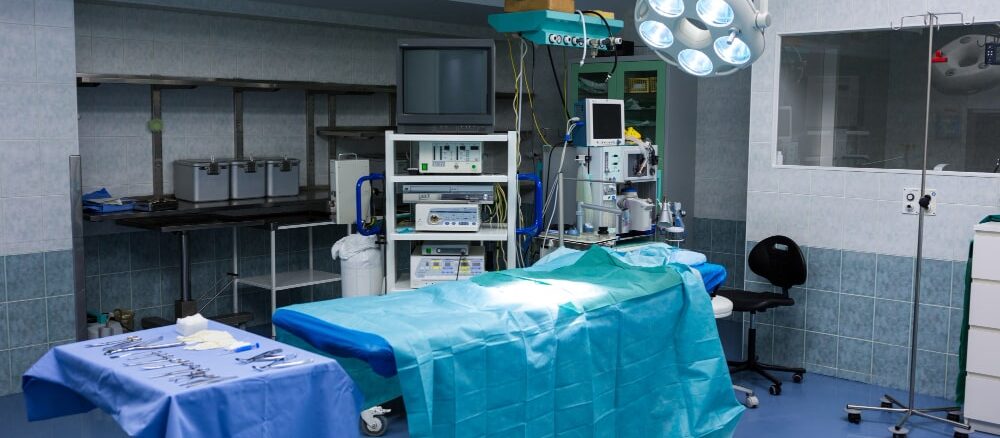Emergencies and unexpected medical issues can happen to anyone at any time. When faced with a medical concern that requires immediate attention, it’s essential to decide where to seek care. The choice between going to the Emergency Room (ER) or an Urgent Care facility can significantly impact the outcome of your health situation and even affect your financial well-being. In this comprehensive guide, we will explore the key differences between Emergency Room care and Urgent Care, helping you navigate the decision-making process and ensure you receive the most appropriate and timely care.
Understanding Emergency Room Care
Emergency Room care is the backbone of any healthcare system, serving as the frontline for treating critical and life-threatening medical emergencies. Equipped with a multidisciplinary team of skilled medical professionals, including emergency physicians, trauma surgeons, nurses, and specialists, ERs are prepared to handle the most severe cases.
Advantages of the Emergency Room
Life-saving capabilities
The ER is designed to manage emergencies that could be life-threatening, such as heart attacks, strokes, severe injuries, and severe allergic reactions.
Advanced medical equipment
ERs are equipped with state-of-the-art technology, including CT scanners, MRI machines, X-ray equipment, and specialized laboratories, enabling swift and accurate diagnosis.
Immediate access to specialists
In critical situations, the ER can quickly mobilize a team of specialists from various medical fields to provide rapid consultations and interventions.
Continuous operation
Emergency Rooms operate 24/7, ensuring that medical care is available at any time, day or night.
The Role of Urgent Care Facilities
Urgent Care centers play a vital role in providing medical attention for non-life-threatening conditions that require immediate care but do not necessitate a visit to the Emergency Room. These facilities are staffed by a range of healthcare professionals, including primary care physicians, nurse practitioners, and physician assistants.
Advantages of Urgent Care
Timely medical attention
Urgent Care centers are known for their shorter wait times, providing prompt care for less urgent medical concerns.
Cost-effective option
Visiting an Urgent Care facility is generally more affordable than going to the Emergency Room care, making it a sensible choice for minor illnesses and injuries.
Extended hours and accessibility
Many Urgent Care centers operate during evenings, weekends, and holidays, providing convenient access to medical care when your primary care physician may be unavailable.
Versatility in treating non-life-threatening issues
Urgent Care facilities can manage a wide range of medical issues, such as sprains, strains, minor cuts, flu symptoms, and infections.
When to Choose the Emergency Room
Life-threatening conditions
If you or someone else experiences symptoms like severe chest pain, sudden and severe shortness of breath, signs of stroke (such as facial drooping, arm weakness, or speech difficulty), or uncontrolled bleeding, call emergency services immediately and head to the nearest ER.
Major injuries
For accidents resulting in broken bones, head injuries, deep wounds, severe burns, or potential internal injuries, the ER is the appropriate destination.
Acute medical conditions
If you have a known chronic condition like asthma or diabetes and experience a sudden severe flare-up, seek immediate care in the ER.
Complex or uncertain symptoms
When the symptoms are severe, but you are unsure of the cause, the ER can provide comprehensive evaluations and diagnostics.
When to Opt for Urgent Care
Minor injuries and illnesses
For minor sprains, strains, minor burns, ear infections, sore throats, and mild allergic reactions, Urgent Care can provide the necessary treatment.
Routine medical services
If you require vaccinations, physical examinations, or prescription refills, Urgent Care is well-equipped to handle these non-emergency situations.
Non-life-threatening conditions after regular hours
When you have a medical issue that cannot wait until your primary care provider’s office reopens, Urgent Care is a convenient alternative.
General medical advice
If you have health-related questions or concerns that do not require immediate attention, you can consult with Urgent Care professionals.
Factors to Consider When Making the Decision
Severity of the condition
As a general rule, if the situation is potentially life-threatening or involves severe injuries, head directly to the Emergency Room.
Cost considerations
Emergency Room visits are typically more expensive than Urgent Care clinic. If your condition is not life-threatening, opting for Urgent Care can save you money.
Accessibility
Take into account the proximity and operating hours of nearby ERs and Urgent Care centers, especially if your primary care provider is unavailable.
Health insurance coverage
Familiarize yourself with your insurance plan’s policies regarding ER and Urgent Care visits to minimize out-of-pocket expenses.
Medical history and chronic conditions
If you have pre-existing medical conditions, consult with your primary care physician to determine the best course of action in emergencies.
Bottom Line
Knowing when to choose Emergency Room care and when to visit an Urgent Care facility can have a significant impact on your health outcome, financial burden, and overall experience. While the Emergency Room is essential for life-threatening emergencies, Urgent Care centers offer a cost-effective and convenient option for less severe medical issues. By understanding the differences between the two and considering factors such as Severity, cost, accessibility, and insurance coverage, you can make informed decisions about your healthcare needs. Remember, if you are ever unsure about the severity of your condition, it is always better to err on the side of caution and seek immediate medical attention. Prioritizing your health and well-being should always be the top priority.

